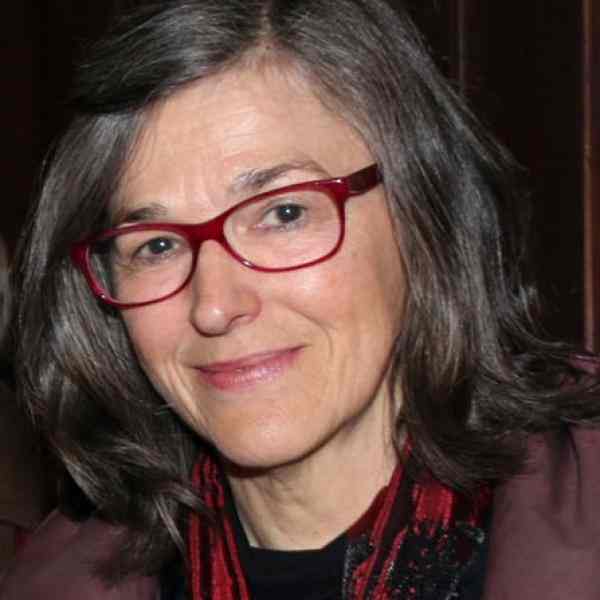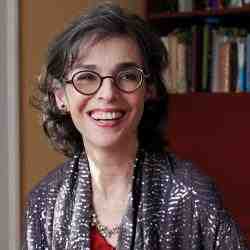Introduction
Marie-Noëlle Besançon is revolutionizing long-term care for those suffering from mental illnesses in France by developing a network of low-cost, easily replicable non-medical living centers aimed at shifting the care of those suffering from psychiatric problems from the clinical realm to the citizen sector.
The New Idea
In France, the mentally ill are commonly perceived as threatening and dangerous. Marie-Noëlle is working to dispel such prejudices and increase public empathy towards this community by better integrating them into society. Through an innovative system of community-living, she invites all citizens to engage directly with mental illnesses—their own or others’—to overcome the stigma surrounding it. While such models are generally used for people suffering from disabilities, social exclusion, or addiction, Marie-Noëlle has gained broad recognition in academia as a pioneer in her new approach to psychiatry.
Marie-Noëlle’s plan to combat stigmatization and promote mental health is effectively breaking down the systematic societal exclusion of the mentally ill. She is achieving this by first engaging local stakeholders in the establishment and sustainability of living centers, encouraging doctors, citizen organizations, local governments, and communities to participate as partners, advisors, and supporters. Within these centers, her highly inclusive strategy adjusts to individual abilities, personal aspirations, and basic needs, allowing patients, staff, and volunteers to live together and develop to their full potential, both personally and professionally.
Since doctors function as partners within her system and work outside the confines of the centers, individuals tend to rely more on the overall community base Marie-Noëlle has fostered, resulting in reduced healthcare costs and increased efficiency. Soon after patients begin taking part in the program, symptoms tend to decrease dramatically, as does the frequency of hospitalization, medication levels, and incidences of relapse. Additionally, costs have dramatically reduced from €800 per patient per day, paid for entirely by social security, to €50 per day in a center, paid for by a balanced mix of social security benefits, income generation through insertion activities, and local support. Consequently, her model is 10 to 70 times less expensive than any other existing solution.
The Problem
Those suffering from mental illness often require care throughout most of their life, and when they lack access to care, they are more likely to see their symptoms worsen, sometimes resulting in greater social and emotional exclusion. This is quite evident in France where people with psychiatric disorders made up 30 percent of the homeless population in 2000, and 40 percent of the prison population.
In recent years, professionals have shifted their psychiatric discourse to the citizen sector in an effort to bridge this growing divide between the mentally disabled and the rest of society. For instance, the French government has led a voluntary policy to dismantle psychiatric hospitals, reducing the number of beds from 170,000 to 70,000 between 1970 and 1995. As a result, individuals in critical situations are hospitalized, for an average of 40 days, as opposed to many years.
The scarcity of hospital beds and adapted care solutions, coupled with the high cost of medical treatment has put a heavy burden on French society and the roughly 600,000 households who care for mentally disabled relatives. These families struggle with open-ended situations of distress and dependency, adding to the persistent stigma surrounding mental illness, which only further isolates them and patients from the rest of society.
The failings of this restructuring are further emphasized by the insufficient development of institutions outside of psychiatric hospitals. The few currently open to the psychologically fragile—such as psychological and medical centers, day hospitals, post-therapy homes, and therapeutic apartments—put strict limitations on duration of stay and clearly isolate patients from their doctors and society. Also, very few provide care and supervision while also promoting an autonomous living. As a result, patients suffer from low self-esteem as they are denied their rights as full, productive citizens. The consequences on their health are dramatic, resulting in depression, disease, and sometimes addiction, further exacerbating their psychological problems and sometimes leading to premature death.
The Strategy
To make citizen psychiatry accessible to all, Marie-Noëlle has initiated the Les Invités au Festin (IAF) Network, a franchised group of care centers throughout France. First targeting larger cities in the most need, she opened centers in every town with more than 10,000 residents. Her pilot location in Besançon, serves about 100 patients a year, engages four full-time staff members and 60 volunteers, and saves €700,000 in social security annually. By 2009, the IAF Network will also run centers in Paris, Lille, Lyon, and Montpellier, and by 2012, Marie-Noëlle hopes to expand the network to include at least one center in each of France’s 23 regions, helping more than 2,500 patients every year and saving the state nearly 20 million Euros.
What started as a social experiment of sorts, Marie-Noëlle’s program has since garnered widespread recognition among practitioners who consider her a pioneer in the field of psychiatry. As a result, she has expanded her program to include a variety of strategic partnerships with nationwide citizen organizations and public institutions. For example, her partnership with UNAFAM, the largest association of families of the mentally disabled has given her legitimacy and a broad local base of support. Additionally, to overcome the difficulty of finding adequate yet affordable housing to accommodate her centers, she has developed a partnership with Habitat et Humanisme through which IAF benefits from complete support to buy, develop, renovate and/or adapt buildings to host the centers.
To ground these centers in their local communities, Marie-Noëlle has developed a variety of grassroots partnerships typically with local entrepreneurs who serve as heads of launch committees. These committees then lead with the fundraising, planning, and launch of new centers, guaranteeing the engagement of all key stakeholders and ensuring recruitment of appropriate leadership and staff. Marie-Noëlle and the IAF Network are partners and facilitators at every step, equipping launch committees with the tools and expertise they need.
The Person
During her career as a psychiatrist, Marie-Noëlle repeatedly fought resistance and deeply engrained practices to improve the care of mentally ill patients in the institutions in which she worked. Through her strong relationships with both patients and families, she realized that separating patients from the outside world predisposed them to relapse and further suffering. Consequently, she set out on a mission to bring families closer together and to detect symptoms earlier through a day-care center for children within the hospital. The results were so dramatic that it convinced her co-workers to adopt more humane care methods, and gained her much support when she launched a unique program of progressive re-adaptation for patients being released from the hospital.
Understanding the limitations of medical treatment and the striking need for long-term care solutions, Marie-Noëlle left the hospital and established IAF as a space for patients and community members to meet and share their experiences. Inspired by models used with the mentally disabled, she spent the following six years developing and demonstrating the effectiveness of what was to become the first IAF center, in which she lived with patients, tested personal and professional development activities, developed a strong citizen base by engaging the local community, and slowly overcame the resistance of the medical profession. When she published a book about her experience, You call them crazy and I live with them, she gained immediate success and recognition with professionals and the general public.
The center in Besançon is now fully independent, and Marie-Noëlle travels throughout France sharing her experiences with professionals, citizen organizations and the public. She also works to facilitate the development of local committees who lead the launch of new centers and meets with government institutions to further her efforts towards the integration and recognition of the mentally ill in society. Among her strongest supporters are Bernard Devert, founder and chairman of Habitat et Humanisme and Martin Hirsch, newly appointed Minister for Active Solidarity Against Poverty.




